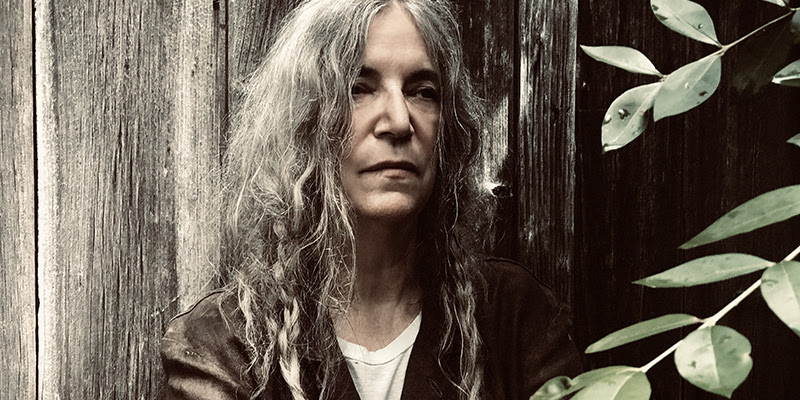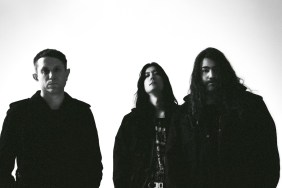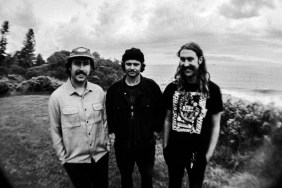Patti Smith isn’t your conventional rock star. The New Jersey-raised performer emerged on the eve of punk’s watershed moment. Her debut album, 1975’s Horses, ushered in the spirit of liberation that defined the punk movement, but Smith’s appeal isn’t centred on anti-establishment lyrics or charging electric guitars. Although she can maniacally scream with the best of rock’s front-people, Smith initially approached rock music as a means through which to transmit poetry.
As such, there’s always been a many-sided complexion to Smith’s appeal. Smith and her band (who were known as the Patti Smith Group from 1974-79) played rock’n’roll music like it mattered. To paraphrase the late Rowland S. Howard, Patti Smith – as much as any artist of her generation – proved that just because you’re making rock music, it doesn’t mean you’re working in the bargain basement of art.
There’s not a bad record among Smith’s 11 studio LPs. The likes of 1996’s Gone Again and 2004’s Trampin’ demonstrate a satisfying sonic maturation. But Smith’s first five records remain the best representation of her unique artistic contribution. Here are ten essential tracks from that period.
1. Dancing Barefoot, Wave (1979)
Patti met Fred “Sonic” Smith, formerly of the MC5, in 1979. Within a few years they’d retreat from public life to get married and start a family. Before that, however, the relationship inspired two of Smith’s most addictive rock songs.
Everyone from U2 to Pearl Jam has covered ‘Dancing Barefoot’, and its influence is written all over the discographies of bands like R.E.M., Pixies and Nirvana. It has an understated quality, which belies Smith’s lyrical admission of all encompassing love.
2. Frederick, Wave (1979)
A Patti Smith love song is remarkable for the absence of cliché. ‘Frederick’ opens Wave, Smith’s fourth album in as many years. And while its intentions are plain – she’s smitten and wants the world to know – Smith’s lyrics are marked by a sort of highbrow reverence.
That said, the inclusion of lines like, “Capture the rapture, two hearts meet/Minds entwined in a single beat,” doesn’t prevent the song from being stupidly catchy.
3. Gloria: In Excelsis Deo, Horses (1975)
The title of Horses’ opening song indicates where on the aesthetic, cultural and spiritual spectrum Smith thinks her work should sit – i.e. somewhere between the lusty bop of ‘Gloria’ by Van Morrison’s Them and the hymn ‘Gloria in excelsis Deo’.
Smith’s song is based on Morrison’s 1965 original, but there’s no question that hers is the definitive version. It begins with Smith’s most famous lyric: “Jesus died for somebody’s sins, but not mine.” The recording, produced by John Cale, showcases a firepower that makes so-called rock bands like The Rolling Stones and Led Zeppelin sound comparatively limp and old hat.
4. Redondo Beach, Horses (1975)
It was tempting to include every song from Horses in this list. It’s not that Smith’s subsequent work failed to match the quality of her debut, but the entire album sits so well together that isolating individual tracks feels sacrilegious.
After the heavy panting of ‘Gloria’ comes the reggae rock number ‘Redondo Beach’. In it, Smith is looking for a friend who disappeared after they’d had an argument. Someone has washed up, dead, on the titular beach. The phrase, “Women all standing with shock on their faces,” creates a distressing contrast to the perky instrumental.
5. Dream of Life, Dream of Life (1988)
There was always a sense of grandeur to Smith’s work. But even as it threw off the shackles of rock’s old guard, Smith’s patent striving for greatness distinguished her output from much of the punk music that followed.
Smith broke up the band after Wave and wouldn’t make another album for close to a decade. Dream of Life is slickly produced but in no way affected by the shoulder pads and ankle warmers of the prevailing decade. The title track carries a solemnity largely absent from Smith’s earlier work, suggesting she now understands the true meaning of love – an engrossing spiritual bond that colours every aspect of life.
6. Ask the Angels, Radio Ethiopia (1976)
Smith’s second album, Radio Ethiopia, came just 11 months after Horses. It rocked harder and devoted less time to outwardly poetic exercises. Aerosmith producer Jack Douglas made everything sound sizzling hot, meaning there was little room for the feverish spontaneity that characterised Horses.
Contemporary reviews were grossly critical. Sure, Radio Ethiopia wasn’t Horses, but it blatantly wasn’t trying to be. Tracks like the album opener ‘Ask the Angels’ prove what an unsung gum the record really is. The Distillers covered it for their 2000 debut, which gives you an idea of its unrestrained sneer. Plus, lyrics like “Rock’n’roll is what I’m born to be/and it’s wild, wild, wild, wild,” are just as evocative as many of Smith’s more studious offerings.
7. Birdland, Horses (1975)
‘Birdland’ is the major stylistic outlier on Horses, but its inclusion is crucial to making the record a replenishing goldmine for listeners. Apparently born out of an in-studio improv session, the band delves into jazz and art-rock experimentalism a la The Velvet Underground.
Smith’s lyrics were inspired by the writings of Peter Reich, son of Austrian psychoanalyst William Reich. Reich junior wrote of being drawn into a UFO piloted by his father’s spirit on the day of his dad’s funeral. This story inspires many stunningly visual lyrics, such as, “It was as if someone had spread butter on all the fine points of the stars/’Cos when he looked up they started to slip.”
8. Free Money, Horses (1975)
Anyone who’s read Smith’s 2011 memoir Just Kids will be aware of the sordid circumstances she and Robert Mapplethorpe endured after moving to New York in the late 1960s. ‘Free Money’ pines for some financial good grace to pull them out of this misery.
In its way, the song is a harsh indictment of American capitalism. Being so skint that your dreams are filled with visions of “dollar bills swirling ’round [your] head,” indicates systemic failure.
9. Because the Night, Easter (1978)
‘Because the Night’ remains Smith’s one true hit single, which was precisely the point. Producer Jimmy Iovine brought Smith an unfinished demo of the song from its writer, Bruce Springsteen. Smith added her own lyrics – barring the chorus hook – and the song became a top 20 hit in the States (it also went to #5 in the UK).
Smith’s stay in the mainstream was short-lived, and Easter isn’t her most complete body of work, but it’s fair to suggest this jolt of success helped secure her place in the pantheon of Western popular music.
10. People Have the Power, Dream of Life (1988)
Smith has reached a whole new generation of fans with her acclaimed memoirs Just Kids (2010) and M Train (2015). The books display the sort of ecstatic wonderment that underpins Smith’s artistic outlook. It’s on display in Dream of Life’s lead single, ‘People Have the Power’, too. It mightn’t be her most poetic work, but it exudes faith in civil society’s power to overcome injustice and “redeem the work of fools.”
–
This April, Patti Smith is headed to Australia to perform as part of Bluesfest as well as a handful of headline shows and an “in conversation” event in Sydney hosted by none other than songwriter and national treasure Paul Kelly.












